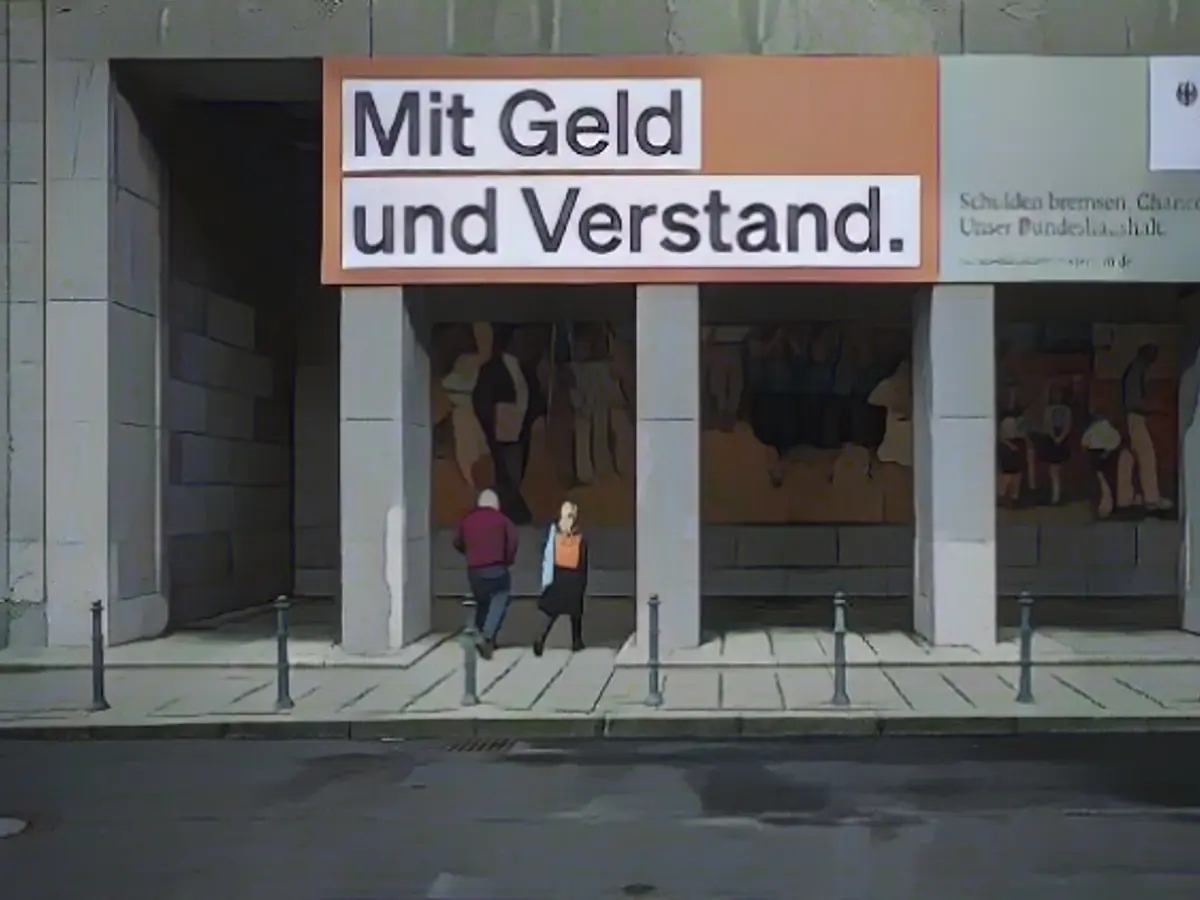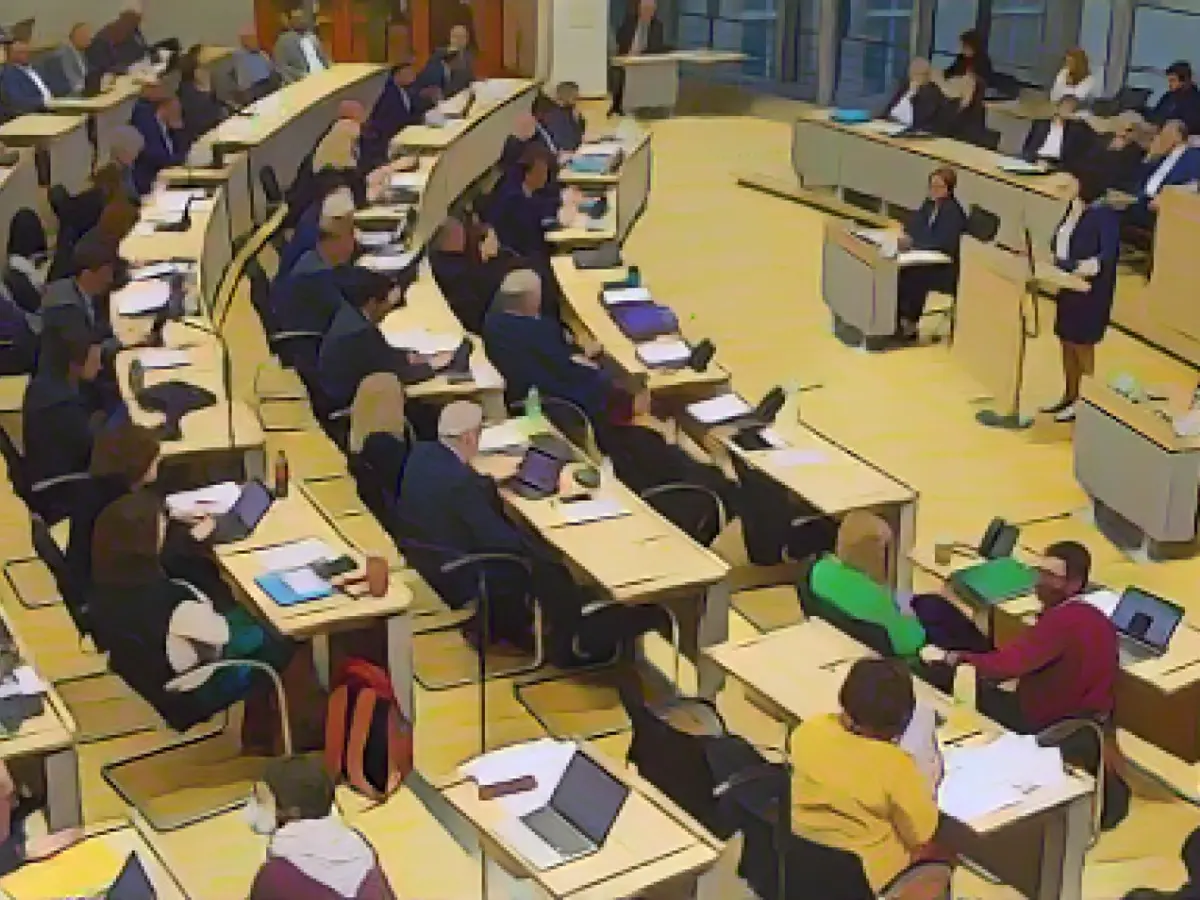Unraveling the Crisis in Germany's Budget Committee: A Delicate Dance for the Traffic Light Coalition
The German government is grappling with a challenging situation: the legality of two major funds, the unlawfulness of the Climate and Transformation Fund (KTF) in its current form, and concerns about the Economic Stabilization Fund (WSF). This predicament is being debated in the Budget Committee and has significant implications for the continued existence of the traffic light coalition.
The aftermath of the historic debt brake ruling still lingers, leaving uncertainty regarding Germany's ability to invest during a recession and the future of the federal government. The coalition's fate hinges on the capacity of the three-party alliance to find a constitutionally compliant route that ensures the financing of key projects for economic growth and climate protection.
A tense scene unfolded in the Budget Committee, with experts from the German government, including legal expert Hanno Kube, providing insights. There was a general consensus that the Federal Government entered this crisis with an open understanding of potential consequences.
Problems loom large
The KTF is facing massive challenges, with numerous projects at risk. If KTF funds are not available, the regular debt limit for the upcoming year could change, casting doubt on the almost completed budget. Moreover, the 200 billion euro Economic Stabilization Fund (WSF), also known as the "double whammy," could be deemed unlawful. The legality of the 2023 and 2024 budgets would then be questionable.
Signs of hope emerge
Although the situation appears daunting, there is room for optimism. Legal experts argue that WSF's structure is "very, very similar" to the unconstitutional KTF. The experts suggest that the Bundestag could prolong the economic emergency of 2022 into the current and following years. This would require the Federal Government to prove in the Bundestag – and potentially before the Constitutional Court – that the original shock still impacts German energy supply.
The Federal Government's acceptance of the WSF's unlawfulness in its current form will be crucial. Lindner's Ministry has already blocked further authorizations following this assessment. While Lindner's team will present an assessment of the debt brake ruling by Thursday, experts have suggested a way to save WSF by reassessing the emergency situation for the years 2023 and 2024.
Broader consequences
The CDU/CSU and AfD have pledged not to take immediate legal action against the WSF. However, if the government fails to prove the Russian invasion's financial effect on Germany, further challenges could emerge. The FDP, particularly concerned with saving face, would find it more difficult to avoid internal debate on reforming the debt brake and potential tax increases.
In essence, the government is seeking alternatives to finance the up to 20 billion euros required for the following year. The coalition aims to reach an agreement on savings by year's end. Despite the lack of a clear way forward, it's crucial for the Bundestag to address this predicament amicably to ensure continued economic and political stability in Germany.
- The German government faces significant challenges due to the unlawfulness of the Climate and Transformation Fund (KTF) and the Economic Stabilization Fund (WSF).
- The legislation surrounding these funds raises questions about constitutional compliance and the separation of powers.
- Legal experts, such as Hanno Kube, provide suggestions to save the WSF by reassessing the economic emergency for the years 2023 and 2024.
- Reaching an agreement on savings within the coalition by the end of the year will be crucial to adapting the budget and preserving political stability.
- If the government fails to prove the Russian invasion's financial consequences, further legal challenges could emerge.
Source:
Enrichment Data: The Economic Stabilization Fund (WSF) and the Climate and Transformation Fund (KTF) are not directly mentioned in the provided sources. However, considering the context, the potential issues surrounding the Federal Government's actions can be linked to the history of US aid and executive overreach in the 2020s.
In the event of the WSF's unlawfulness, certain principles could potentially protect the fund and similar funds in future:
- Legislative Oversight: Ensuring proper oversight of executive actions related to funding can help prevent unconstitutional activities.
- Transparency: Maintaining transparency in cabinet-level appointments and any policy changes related to the execution of emergency funds can foster trust and accountability.
- Congressional Intervention: In times of crisis, Congress has a role to play in ensuring compliance with the rule of law, such as reviewing and codifying extraordinary actions taken by the executive branch.
By prioritizing legislative oversight, transparency, and congressional intervention, the Federal Government can mitigate the risk of future challenges to its funds' constitutionality. These measures can help maintain the integrity of crucial government initiatives and foster public confidence in its decision-making processes.








